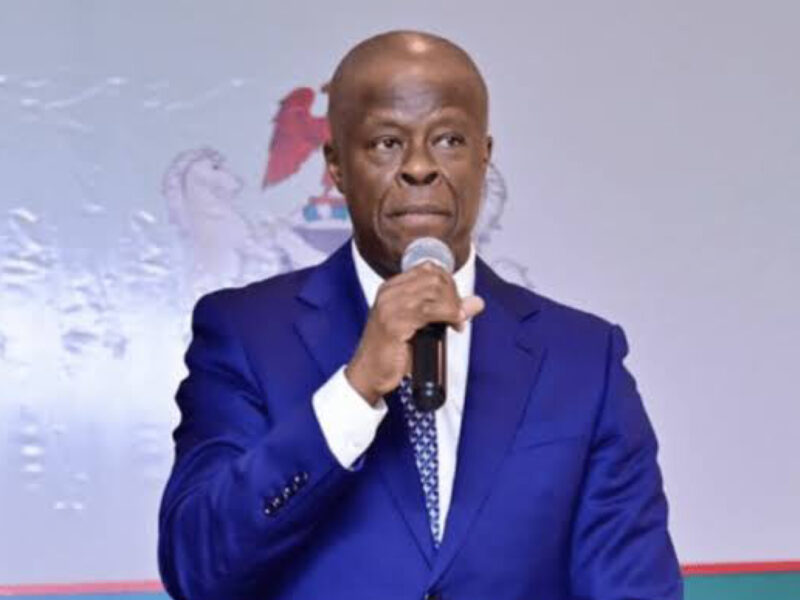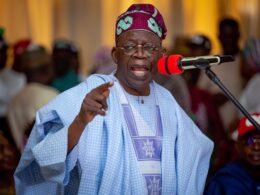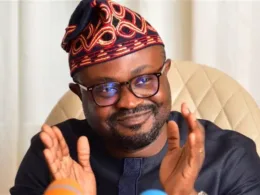Nigeria’s Revenue Surge Fuels Social Investment Initiatives, Says Finance Minister Wale Edun
Abuja, Nigeria – In a significant address during the 30th Nigeria Economic Summit in Abuja, Wale Edun, the Minister of Finance and Coordinating Minister of the Economy, revealed that the impressive rise in Nigeria’s revenue for the 2024 fiscal year will be strategically directed towards various social intervention initiatives intended to enhance the living conditions of citizens and tackle urgent societal challenges.
Edun announced that the social investment program is designed to reach 60 percent of the country’s poorest citizens, aiming to provide assistance to around 20 million individuals. Additionally, he outlined an extensive agenda for economic reform focused on reducing inflation, fostering job creation, and boosting growth in critical sectors.
In a statement made on October 1, 2024, President Bola Tinubu reported that government revenue for the first half of the year (January to June) exceeded N9.1 trillion—more than twice the N4.06 trillion generated during the same period last year.
Speaking at the session titled ‘Fiscal Reforms for a More Secure Future,’ Edun explained that this increase in revenue is being primarily allocated to finance social programs designed to soften the impact of essential reforms that have affected the cost of living for many Nigerians.
He stated, “The initial focus for revenue generation was domestic resource mobilization. By the first half of this year, we successfully doubled our revenue.”
Edun attributed this success to robust technological applications that have revolutionized operations within the civil service and improved compliance across government ministries, departments, and agencies.
The social investment program, targeting the poorest 60% of the population, has already provided direct support to four million households, with plans to increase that number to 15 million households benefiting from direct government transfers. “This is how President Tinubu’s government is directing resources generated from improved oil production,” he emphasized.
The minister also pinpointed agriculture, manufacturing, oil, and housing as vital sectors for Nigeria’s economic rejuvenation. “We are prioritizing food production to alleviate inflation and make food more accessible and affordable, ultimately reducing living costs for Nigerians,” Edun noted.
In the oil sector, he highlighted the government’s initiatives aimed at enhancing the industry’s role in generating foreign exchange. Recent reforms have led to a substantial influx of investments, notably an additional $10 million from ExxonMobil and other prominent industry players.
“The oil sector remains our primary avenue for securing foreign exchange and global revenue,” Edun asserted, expressing confidence that both local and foreign investors will continue contributing positively.
These measures have encouraged domestic manufacturers to commit as much as $4.2 billion in investments, significantly enhancing the country’s economic outlook. The minister also pointed out various initiatives such as a student loan scheme and consumer credit options available to workers for purchasing household essentials or converting their vehicles to more affordable Compressed Natural Gas.
In agriculture, the government is allocating grants and loans totaling N75 billion to support one million small and micro enterprises, alongside an additional N75 billion in staggered loans for larger firms, aimed at assisting them in managing production costs amid recent foreign exchange adjustments.
“This reflects how President Tinubu and his administration are utilizing the increased revenue driven by enhanced oil production and essential economic reforms expected to save the country 5 percent of GDP,” Edun stated, highlighting the wide range of social investment programs receiving these funds.
Additionally, Ndiamé Diop, the World Bank Country Director for Nigeria, commended the country’s remarkable revenue growth, noting improvements in the revenue-to-GDP ratio. He cautioned, however, that Nigeria faced a substantial fiscal deficit in 2022, where expenditures accounted for 12.9 percent of GDP against revenues of only 7.6 percent, which, if left unchecked, could have initiated a financial crisis. Diop reinforced the need for ongoing reforms to stabilize Nigeria’s fiscal standing and promote sustainable economic growth.










Join our Channel...